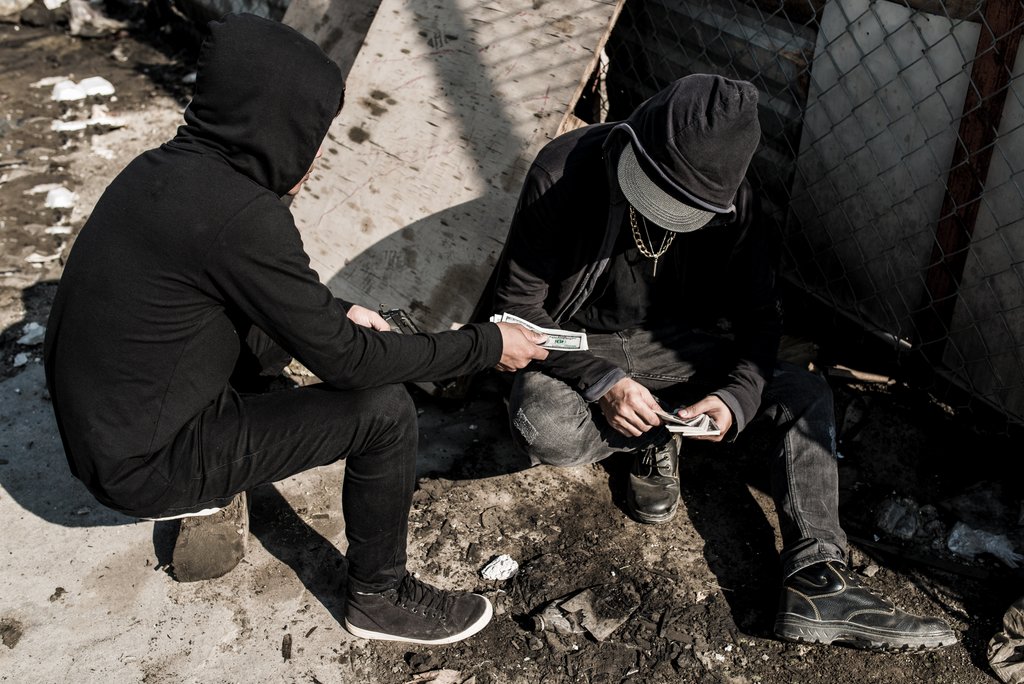Research - 20.03.2024 - 16:00
“The Mafia assumes the role of the state for participants in the black market”
The market economy exists not only in its legitimate form. Markets also emerge in the exchange of illegal goods such as in drug or human trafficking. Dr. Matias Dewey from the Institute of Sociology at HSG delves deeply into the market mechanisms within the shadow economy. In this interview, he explains, among other things, how illegal markets regulate themselves and the role that violence plays in it.

Mr. Dewey, what conditions foster the emergence of illegal markets?
There are various conditions, of course. One of them is societal crises such as wars. There are various studies documenting the growth of illegal markets during the Second World War. And now, in Ukraine, many illegal markets have emerged due to the war like the markets for drugs. Besides, in economic crises, more people are inclined to want to earn money with illegal goods. And if we look at Latin America and the whole drug market, we also see that problems with the state enforcement of the law and the societal marginalization of large parts of the population can contribute to the emergence of illegal markets.
You have extensively researched the functioning and organizational methods of illegal markets. What are the main differences between these and legal markets?
I would say there are three main differences:
Firstly, consumers in illegal markets have less insight into the quality of a product. For example, when buying drugs, there is no information about ingredients or purity, as is often required for providers in legal markets.
The second difference is the nature of competition. In legal markets, there are official rules of the game that competing providers must adhere to. There are no restrictions in illegal markets. That is also the reason why there are often outbreaks of violence here.
The third difference is that there is less cooperation and trust in illegal markets. Because here you cannot simply rely on a rule of law if you have been cheated in a deal.
Despite these weaknesses of illegal markets, many transactions there seem to function "smoothly" apart from sporadic outbreaks of violence. What mechanisms are at play here to mitigate the mentioned weaknesses?
Especially when it comes to the problems of unregulated competition and legal uncertainty in transactions, we see that organizations in the style of the mafia take on the role of the state. So if I am cheated, I can hire such an organization for a fee, which then ensures that my concerns are heard through intimidation and violence. Importantly, mafia organizations profit from social distrust to become arbitrators in disputes, they aim at a state-like position in society. The problem of uncertainty regarding the quality of products in illegal markets can hardly be solved. The quality problem can only be mitigated, for example, by trust relationships as those established between drug buyers and dealers.
How are typical organizations operating in illegal markets organized?
Contrary to popular belief, many of today's criminal groups are rather loose and network-like in organization. People often don't know each other well, and there is often chaos and inefficiency. Of course, there are individual large hierarchical organizations, such as in the drug market. However, these are more located in the drug production in the supply chain than in the sale. And they rarely have long-lasting dominant groups like some drug cartels in South America. Here, there are rather several hierarchical groups that vie for dominance and often do not last long. But in many illegal markets, such as the counterfeit market or the market for stolen goods, looser networks dominate.
What determines how people organize themselves in illegal markets?
I would say an important factor is how exposed the area is to prosecution by law enforcement agencies, which decisively determines how much pressure there is to streamline and hierarchize the organization. If the risk of prosecution is high, then one must be more careful about whom one associates with. In illegal markets that are largely tolerated by society, such as the counterfeit trade, it is easier to operate, and therefore loose, inefficient networks can better succeed. Research shows that illegal markets, especially those for drugs, are populated by what Peter Reuter called “disorganized crime”. This means rather small groups acting erratically, with internal coordination problems and lack of experience. This means also that violence is not the outcome of a specific element such as the organized form but of various factors.
What is power based on within hierarchical organizations? What determines who becomes the leader?
It depends on the organization. In some groups, one rises to power if one has strong networks, including contacts within the police and the state. In others, one gains respect by killing many people. Generally, the ability to exercise violence plays a strong role in the constitution of power in such organizations.
This reminds one of Mao's quote that political power ultimately "comes from the barrel of a gun." But what enables the bosses of such organizations to command a large number of armed men without these men turning their weapons against the bosses themselves to seize their wealth?
This does happen sometimes and is a problem for many of the gang leaders, leading them to frequently operate from hiding places. But in some groups, there are also several bosses. If renegade gang members conspire against one boss and kill him, they still have to expect retaliation from other bosses.